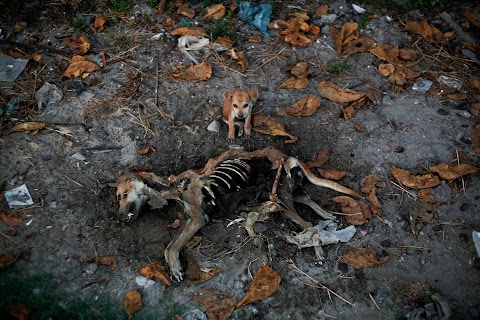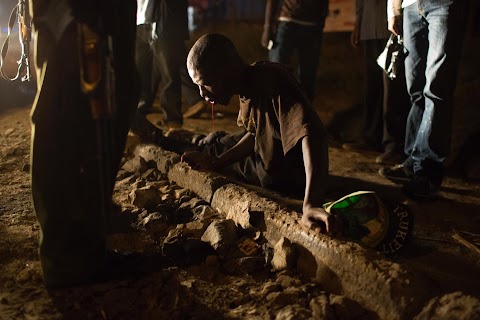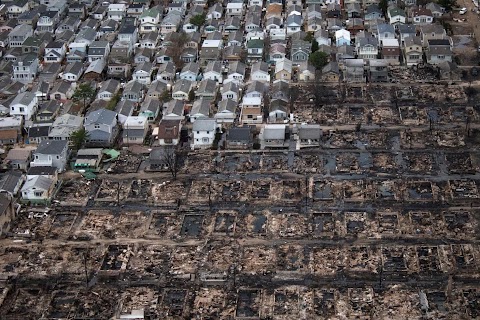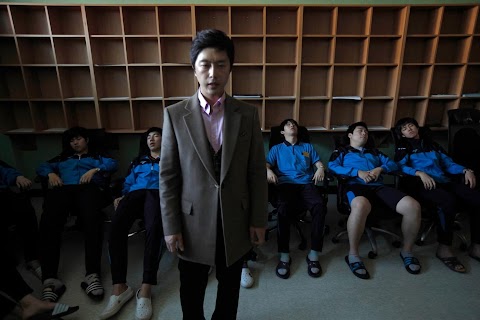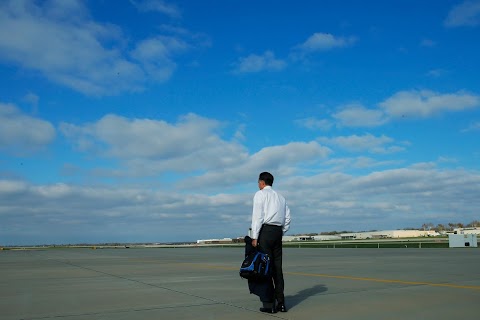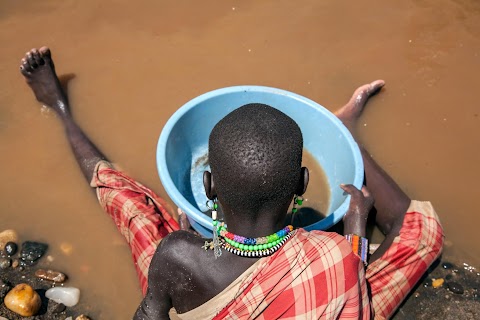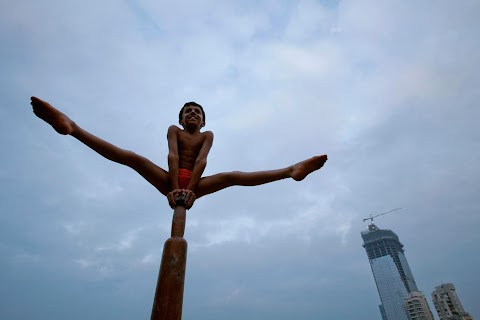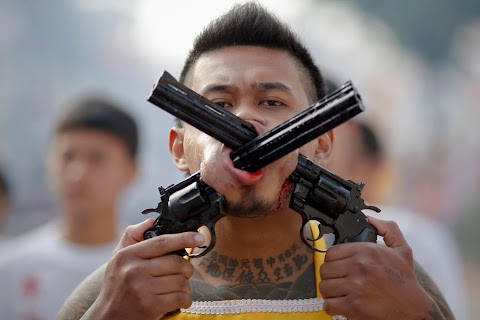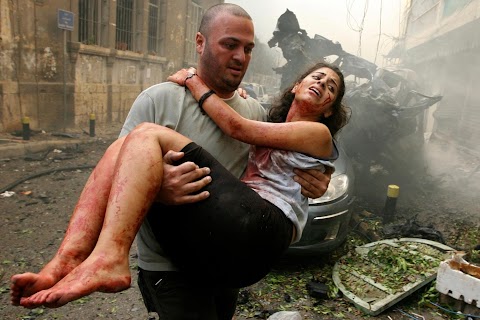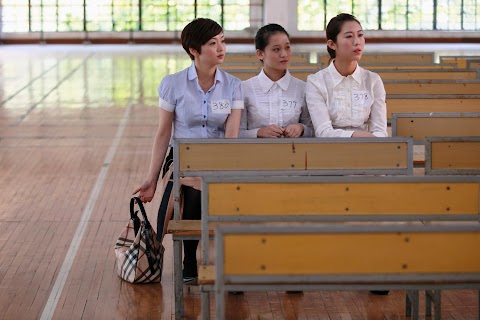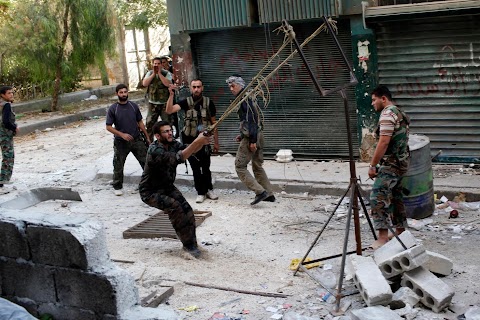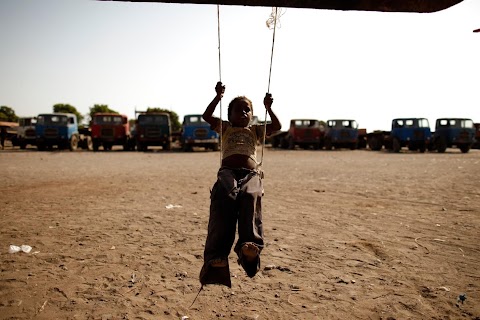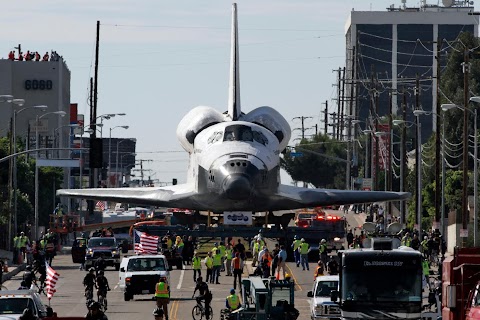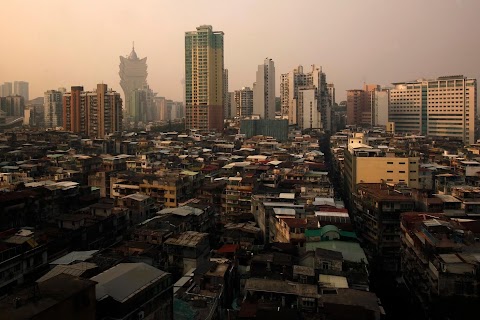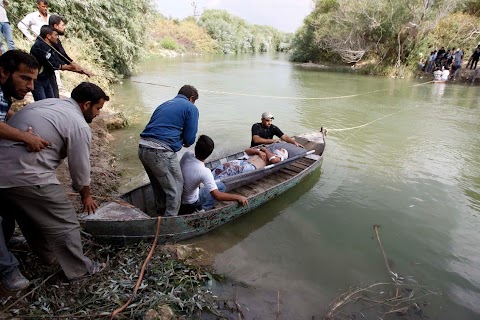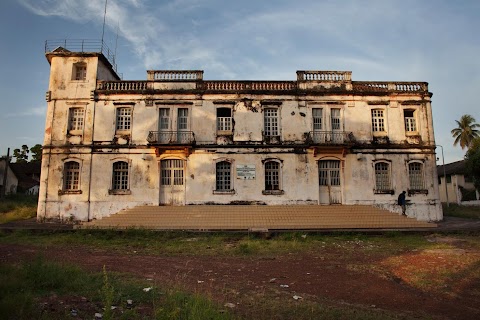
The weight of history
 Joe Penney
Joe Penney
Years of violent conflict gave birth to the tiny West African country of Guinea-Bissau. It took a 14-year struggle to unseat its brutal Portuguese colonial rulers, who themselves had inflicted a 49-year-long war of 'pacification' on the local population.
The legacy of this violence is still felt today. Since Guinea-Bissau switched to a multiparty system in 1995, no president has completed a full term.

The fading symbols of colonial rule can still be seen throughout the country, among them this crumbling statue of Portuguese explorer Diego Cao, which stands in an old Portuguese slave fort. Cao became the first European to set foot in the city of Cacheu, where the Portuguese established a slave-trading port in 1480.

After independence, many in the country hoped for a better life but mismanagement, political infighting and the legacy of violence disrupted efforts to rebuild the state.
Former independence fighter Djenabu Sambu, 65, joined the rebels at the age of 18 after the Portuguese army killed her brother and imprisoned her mother. “Independence was good because we got rid of the Portuguese,” she said. “But we are still working. Every day we see things we don’t want to see.”

The impact of years of war has left members of the younger generation like Samba, pictured here with a Nike logo shaved into his hair, with little hope for their future. With no stable government in place, the country is becoming known as a “narco-state,” as South American drug cartels use it as a transit point to traffic cocaine to Europe.
"Only a few goats and bats inhabit the buildings, but the structures still dominate the landscape."
When Guinea-Bissau is in the news, it’s almost always for the wrong reasons: coups d’état, assassinations, drug smuggling and extreme poverty.
Journalists like to cite the fact that since the tiny West African country switched to a multi-party system in 1995, no president has completed a full term. The country is often labelled a “narco-state” because South American drug cartels use its islands and mainland as a waypoint for trafficking cocaine to Europe, even though its neighbours are dealing with the same problems.
But this reputation is rarely put into historical context. After the Portuguese created what is modern-day Guinea-Bissau in 1890 when European powers divided the African continent at the Berlin Conference, they fought a 49-year war of “pacification” against the local African communities resisting their rule.
To gain its independence from an extremely violent Portuguese rule, the anti-colonial rebel group PAIGC (African Party for the Independence of Guinea-Bissau and Cape Verde), fought a brutal liberation war from 1960 to 1974.
After independence, hopes for a better life were high, but mismanagement, political infighting and the legacy of violence disrupted efforts to rebuild the country. After a few years of peace, elements of the PAIGC took their revenge against the Bissau-Guineans who fought for the Portuguese and massacred hundreds at a time.
Tension among politicians and the military grew to a boiling point in 1998, when the country erupted in civil war for a little less than a year.
Today, “the country is ‘managed’ by a cycle of violence…which is a extension of prior conflicts, conflicts lived during the national liberation war,” said historian and former independence fighter Mario Cissoko.
In total, the country has been officially at war for 65 of the 122 years since its colonial creation. In between that time, a low-level conflict has been waged. The extreme violence has scarred every citizen of the country.
At 18 years old, after the Portuguese army killed Djenabu Sambu’s brother and imprisoned her mother, Sambu’s friends convinced her to join Guinea-Bissau’s anti-colonial rebels.
After independence, Sambu and her comrades had high expectations of their wartime leaders, whose deeds on the battlefield showed that they were capable of accomplishing a lot for their country.
“Independence was good because we got rid of the Portuguese,” she said. “But we are still working. Every day we see things we don’t want to see.”
On the island of Bolama, where the Portuguese first built their colonial capital, pastel-coloured colonial mansions and state houses are left to crumble among the palm trees. Only a few goats and bats inhabit the buildings, but the structures still dominate the landscape of the island and the consciousness of the people.
“You chase out the Portuguese colonisers, you condemn them, you say they’re bad, they kill, they imprison, they take our African resources. And then after you take power you do worse than them,” the historian Cissoko said.
“It’s not sufficient to have a flag, to have police, a government. Independence is much more than that,” he added.
Today, a transitional body, installed after a military coup ended the previous government and cancelled presidential elections in April, governs Guinea-Bissau.
Faced with economic paralysis and a lack of international recognition of his government, the president Manuel Serifo Nhamadjo argued that Guinea-Bissau’s problems needed to be properly diagnosed before they could be addressed.
“Since 1995, why has no president finished a mandate? We need to find out why. Why have there been so many assassinations and no justice up to now? ...Why is there so much hate in Guinea-Bissau?” Nhamadjo said to me in an interview.
These things have been happening a long time,” he said before adding, “If we don’t take time to stop and think, we are just prolonging these problems."
For Adja Satu Camara Pinto, a former independence fighter who is now the president’s chief-of-staff, “the people have lost the hope of the revolution.”
“People will die and the histories will disappear. A nation needs to identify with its history, it needs to value its history, it needs to know its history,” she said.
Slideshow

The logo of a company of Portuguese colonial forces is engraved on a stone in Guiledge, which was formerly a stronghold of the Portuguese army. Guiledge's fall to anti-colonial rebels in early 1973 marked the final stages of Portuguese rule.

Former independence fighter Samba Diakite, 69, lost his leg in 1969 in a mine blast set by the Portuguese army. Today there are still live mines scattered around the countryside in Guinea-Bissau.

Former Guinea-Bissau independence fighter Jose Sambe, 62, holds out an old photograph of himself in military uniform. Sambe was a teacher and interpreter during and after the independence war.

Former independence fighter Daouda Bangura, 75, joined the anti-colonial rebels at 21 and was part of a delegation that met with the Foreign Minister of China in 1960.

Former independence fighters receive their monthly pension payments in the country's capital Bissau. Pensions range from $30 to $400 per month.

A newscaster reads the news during a national television broadcast.

A man puts together Guinea-Bissau's state newspaper.

Bataia Martinho Elias, 42, stands in an empty room in the fish factory he manages. After a coup d'etat in April 2012, Elias lost his fish business and shifted to manufacturing ice.

Weeds grow in a former colonial administrative building in Cacheu, where the Portuguese established a slave trading base in the 1500s, their first activity in what is modern-day Guinea-Bissau.

Guinea-Bissau soldier Ero Balde, 33, looks out across agricultural fields in the village of Lugadjol. Guinea-Bissau's independence fighters first proclaimed independence on September 24, 1973 in the hills next to this village, but there are no markers there now to signify the importance of the date.

Student Rachid Malam peers off the edge of a colonial-era dock on the island of Bolama, the site of the first Portuguese colonial capital of Guinea-Bissau, established in 1890.

People leave Bolama by pirogue, a type of canoe.

A taxi is reflected in a puddle near the port in Bissau. In 1959 the Portuguese police killed over 50 Guinean dockers who were protesting over pay and working conditions, marking the start of violence in the country's war of independence.

A girl leaves a colonial-era building in Bolama.

Young men play basketball in the capital of Guinea-Bissau where, nearly 40 years after independence, many young people still face crushing poverty and can find little gainful employment.

A man sleeps on the floor of a bar in a colonial-era building.

Mohamed Daciro Djalo walks through the abandoned former colonial governor's mansion.

Construction worker Babacar Diaby looks out at a monument to Guinea-Bissau's independence.
